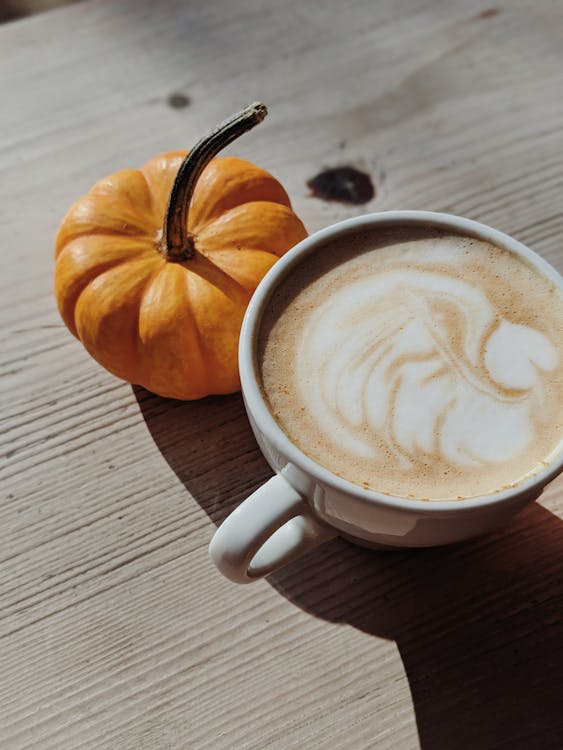Rex Isap, the sleep expert and CEO at Happy Beds is urging against this, “When it comes to that crucial first cup of coffee in the morning, many people tend to reach for their coffee pot – or Starbucks – for their favoured beverage. However, Happy Beds recommend waiting at least one hour before reaching for the caffeine in order to reap the benefits of caffeine.
“Upon waking, our cortisol levels, often associated with stress, are at their peak. Surprisingly, cortisol enhances alertness. Having caffeine while cortisol levels are already high may counteract this effect, possibly leading to a tolerance for caffeine.
“Throughout the day, our brains produce a sleep-promoting chemical called adenosine. The longer we stay awake, the more adenosine builds up, making us feel sleepy. Yet, caffeine throws a spanner in the works by blocking adenosine receptors, keeping us alert and promoting wakefulness. So, if you’ve ever found it challenging to drift off after a day filled with coffee, this could be the underlying reason. My advice would be to consider holding off on that morning brew for at least an hour. Your cortisol levels and, ultimately, your sleep might just appreciate the breather.”
Rex also recommends to think twice before reaching for a post-work pumpkin spice hit, too:
“Studies depict that drinking caffeine in the six hours before bed had significant disruptive effects on sleep. While a pumpkin spice latte has a similar warm and cosy feel that we might associate with relaxation, the caffeine content in a large Starbucks PSL is as high as 75mg – just one cup is enough to stick in your system long enough to impact sleep. Avoid caffeine anytime after 2pm to 3pm to ensure your sleep isn’t affected.”
Five fail-safe alternatives to coffee for a better morning boost ⏰
If you’re keen on having a comforting beverage immediately upon waking, consider these vibrant alternatives to coffee for an energy boost:
- Turmeric Latte or ‘Golden Milk’
If you ever sipped on warm milk before bedtime, the Turmeric Latte, also known as ‘golden milk,’ might be a comforting choice for your morning routine. The key ingredient, turmeric, not only gives it a distinctive colour but also brings along numerous health benefits, including antioxidants, anti-inflammatory properties, and an effective antidepressant. Additionally, turmeric may aid in protecting against sleep deprivation, potentially contributing to improved sleep quality.
- Chicory Root ‘Coffee’
For those seeking a coffee alternative with reduced caffeine intake, chicory root ‘coffee’ fits the bill. Crafted from roasted chicory root, it emanates a nutty and woody aroma, resembling the taste of coffee. Popular in various cultures, this option could be a satisfying placebo for coffee lovers looking to cut back on caffeine. Notably, chicory root ‘coffee’ may enhance digestive health and reduce inflammation, although caution is advised for those who are pregnant or breastfeeding.
- Matcha Tea
Riding the trend wave, Matcha tea offers a potential alternative with notable benefits. Packed with L-theanine, an amino acid abundant in the tea plant, Matcha surpasses green tea in content, lending it a slightly sweet taste. The increased L-theanine in Matcha is believed to improve sleep, focus, and even learning. While it does contain caffeine, moderation and consumption a few hours before bedtime may allow you to enjoy its benefits without disrupting your sleep.
- Peppermint Tea
Renowned for its natural caffeine-free nature, peppermint tea stands out as an excellent choice for a relaxing drink. Beyond its potential health benefits, such as aiding digestion and alleviating headaches, the absence of caffeine makes it a suitable option for a pre-bedtime routine. Known for its muscle relaxant properties, peppermint tea could contribute to winding down before sleep, even though comprehensive studies on its sleep-improving effects are limited.
- Ginger tea
Caffeine-free and celebrated for its health benefits, ginger tea can be a soothing addition to your evening routine. With anti-inflammatory properties and a rich antioxidant profile, ginger tea not only aids in reducing nausea but might also contribute to prolonged periods of sleep, according to some research. Enjoying a cup of ginger tea before bedtime could be a delightful and healthful way to wind down.
Credit https://www.happybeds.co.uk/blog/how-coffee-alternatives-can-improve-your-sleep
Help keep news FREE for our readers
Supporting your local community newspaper/online news outlet is crucial now more than ever. If you believe in independent journalism, then consider making a valuable contribution by making a one-time or monthly donation. We operate in rural areas where providing unbiased news can be challenging. Read More About Supporting The West Wales Chronicle






















